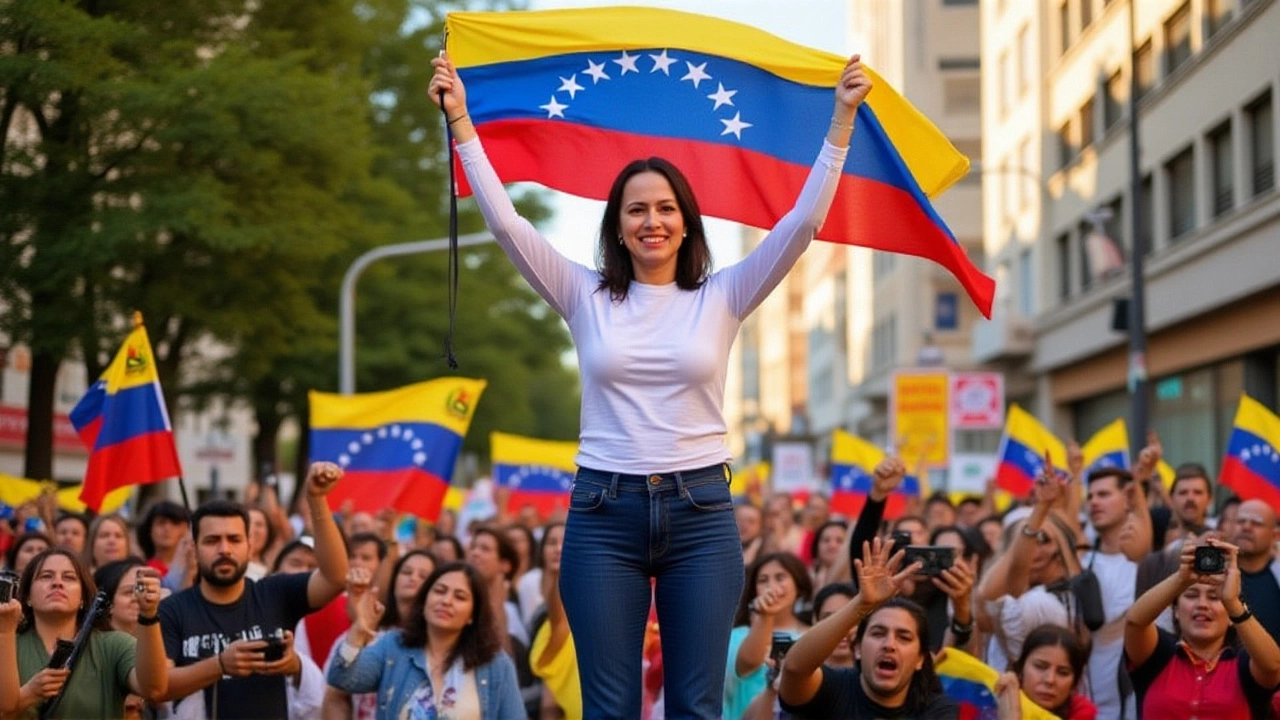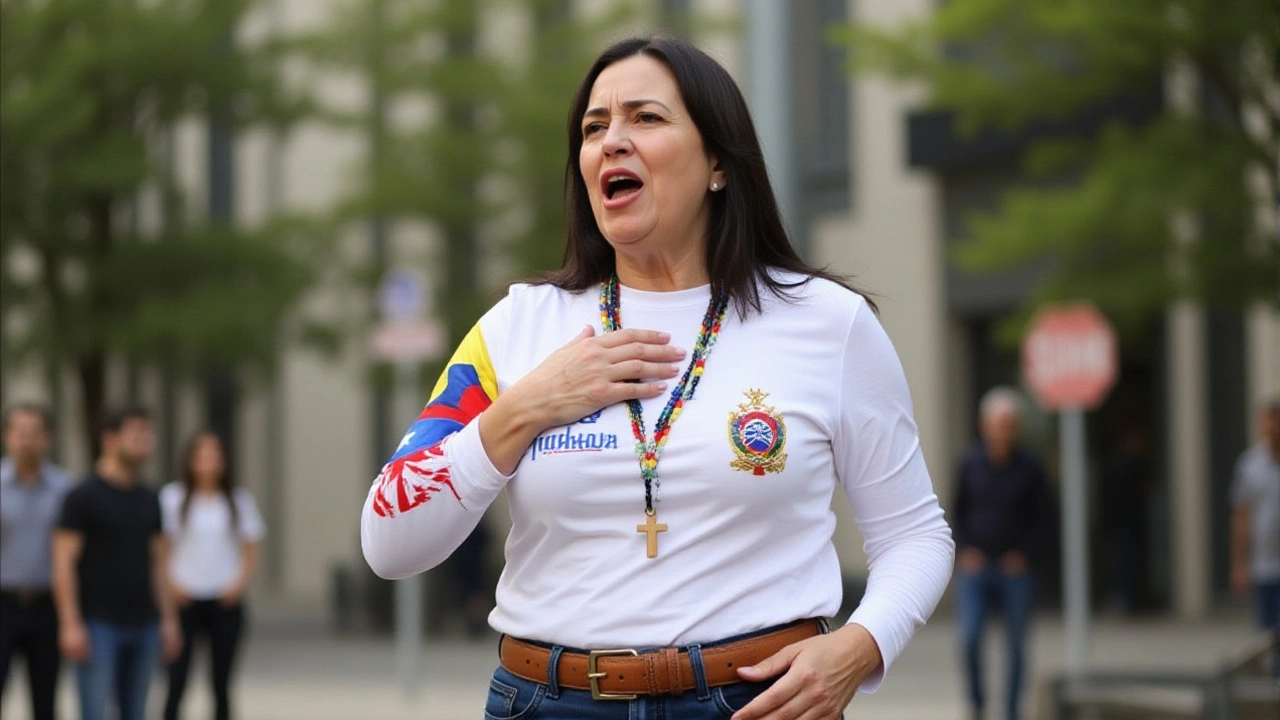When Maria Corina Machado, Venezuelan opposition leader was announced as the 2025 Nobel Peace Prize laureate, the world took a collective breath. The surprise came on Friday, 10 October 2025, at 11:00 AM Central European Time, from the historic halls of the Norwegian Nobel Institute on Henrik Ibsens gate 51 in Oslo, Norway. The award recognized her relentless push for democratic rights in a nation many observers now label a dictatorship.
Why the Committee chose Machado
The Norwegian Nobel Committee praised Machado as “a brave and committed champion of peace” and highlighted her role in uniting a fragmented opposition around the simple demand for free, credible elections. In the committee’s own words, her work “keeps the flame of democracy burning amidst a growing darkness.” The citation stressed that defending popular rule, even when factions disagree, is at the heart of the Nobel Peace Prize ethos.
Behind the scenes: the call that changed everything
Just fifteen minutes before the public announcement, Kristian Berg Harpviken, director of the Norwegian Nobel Institute, placed a call to Machado. At 10:45 AM CET he identified himself as “the secretary of the Norwegian Nobel Committee in Oslo” and delivered the news. Machado’s reaction—“Oh my god… I have no words. I thank you so much, but this is a movement, not just me”—captured the humility that the committee later echoed.
The ceremony details
The formal presentation will take place on 2025 Nobel Peace Prize ceremonyOslo City Hall on 10 December 2025, the anniversary of Alfred Nobel’s death. The event, traditionally held in Oslo’s City Hall, will be streamed live by NRK, Norway’s public broadcaster. While the exact monetary amount was not disclosed in the announcement, history shows the prize includes 11 million Swedish kronor (about $1.05 million USD) alongside a gold medal and diploma.
Reactions from Caracas to Copenhagen
In Venezuela, streets in Caracas filled with candles and chants of “¡Libertad!” within hours of the news. Opposition figure Juan Guaidó called the award “a beacon for every Venezuelan yearning for a free vote.” Meanwhile, the government, led by President Nicolás Maduro, dismissed the Nobel decision as “foreign interference aimed at destabilising our sovereignty.” Internationally, European diplomats praised the move as “a timely affirmation of democratic aspirations in Latin America.”

What experts say
Political scientist Dr. Ana López of the University of Buenos Aires noted that honoring a figure still under house arrest (Machado has faced multiple legal bans) sends a powerful message to authoritarian regimes worldwide. “It shows that non‑violent resistance, even when brutally suppressed, can still capture global moral authority,” she wrote in an op‑ed for *The Guardian*.
Security analyst Michael Berg of the Stockholm International Peace Research Institute warned that the award could provoke a backlash from Venezuelan security forces, potentially tightening restrictions in the short term. “History teaches us that regimes often double‑down after international embarrassment,” he said.
Broader implications for democracy
Beyond Venezuela, the Nobel decision arrives at a moment when democratic backsliding is evident across Europe, Africa, and Asia. By highlighting the “shared willingness to defend popular rule even though we disagree,” the committee drew a line in the sand, reminding world leaders that the peace prize is not just about cease‑fires but about the structural health of societies.
For Latin America, Machado becomes the eighteenth laureate from the region, joining the ranks of figures like Rigoberta Menchú and Juan Echeverría. Her win may inspire other grassroots movements, from Chile’s student protests to Colombia’s land‑rights campaigns, to press harder for accountability.
What’s next for Machado?
After the ceremony, Machado is expected to travel back to Venezuela under the watchful eyes of security forces. Her team says she will continue to coordinate with diaspora groups in the United States, Spain, and Colombia, seeking diplomatic pressure on the Maduro regime. The Nobel medal, they hope, will become a rallying point at future talks, whether in Quito, Caracas, or the United Nations.
In the meantime, the Norwegian Nobel Committee, chaired by Berit Reiss‑Andersen since 2017, has signaled that the prize will continue to focus on “individuals or organisations that embody the spirit of Alfred Nobel’s vision for a more peaceful world.” How this translates into future selections remains to be seen, but the 2025 award certainly set a bold precedent.
- Prize: 2025 Nobel Peace Prize to Maria Corina Machado
- Announcement time: 11:00 AM CET, 10 Oct 2025
- Ceremony: 10 Dec 2025 at Oslo City Hall
- Key figures: Berit Reiss‑Andersen (Chair), Kristian Berg Harpviken (Director)
- Impact: Highlights democratic struggle in Venezuela and Latin America
Frequently Asked Questions
Why did the Nobel Committee choose a Venezuelan activist this year?
The committee highlighted Machado’s ability to unite a deeply fragmented opposition around free elections, a core democratic demand. In a time when authoritarianism is resurging, honoring her sends a clear signal that non‑violent civic courage remains worthy of global recognition.
How might the award affect Venezuela’s political climate?
The prize could embolden opposition activists and attract international diplomatic pressure on the Maduro government. However, analysts warn it may also trigger a short‑term crackdown as the regime attempts to reassert control.
What is the historical significance of a Venezuelan winning the Peace Prize?
Machado becomes the first Venezuelan laureate and the 19th Latin American recipient since the prize’s inception in 1901. Her win adds to a lineage that includes figures like Rigoberta Menchú, underscoring the region’s recurring fight for human rights.
Who will present the medal at the ceremony?
The medal will be handed over by the five members of the Norwegian Nobel Committee, chaired by Berit Reiss‑Andersen, during the formal ceremony at Oslo City Hall on 10 December 2025.
Will the prize money be disclosed?
The announcement did not specify the amount, but past awards have included 11 million Swedish kronor (approximately $1.05 million USD). The exact figure for 2025 is expected to be confirmed at the December ceremony.
